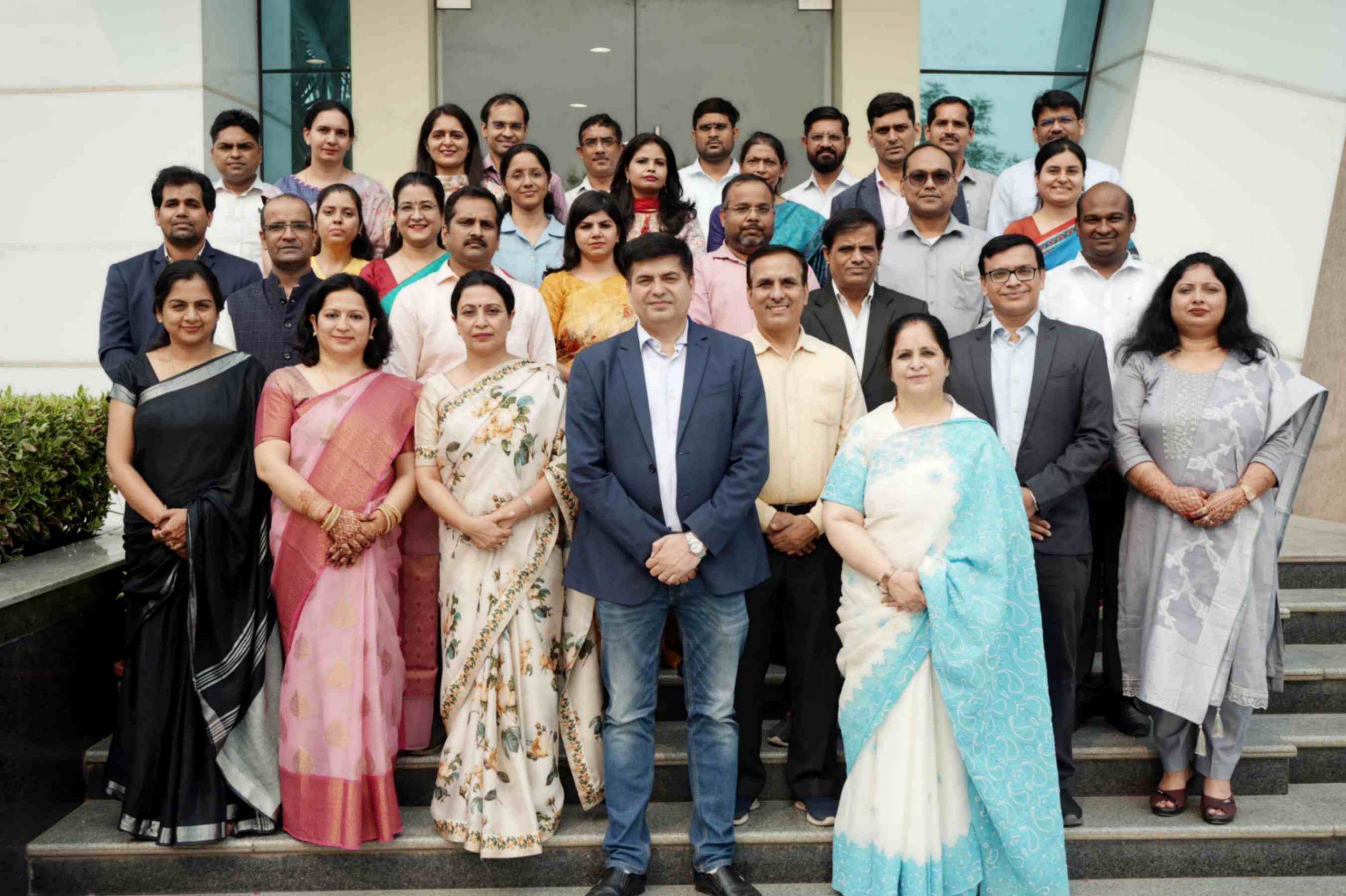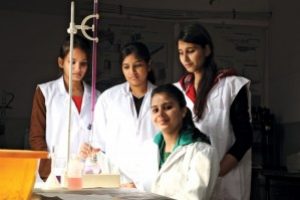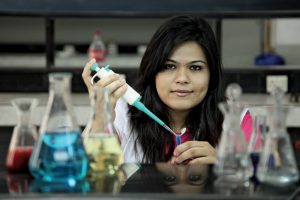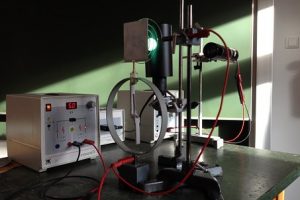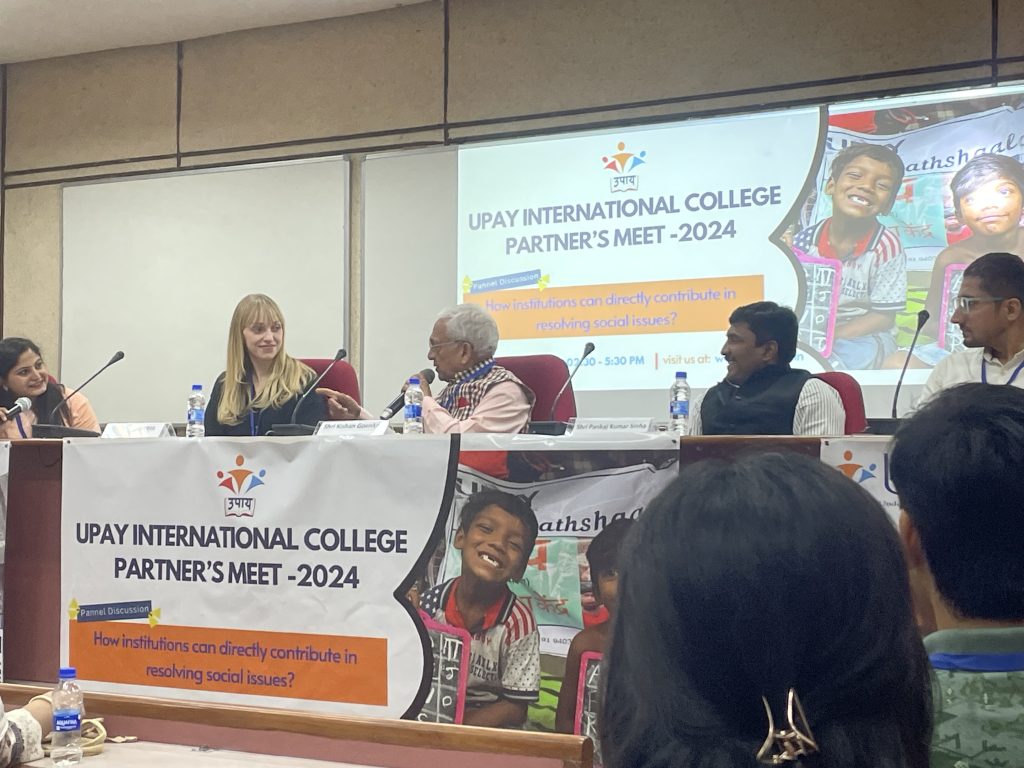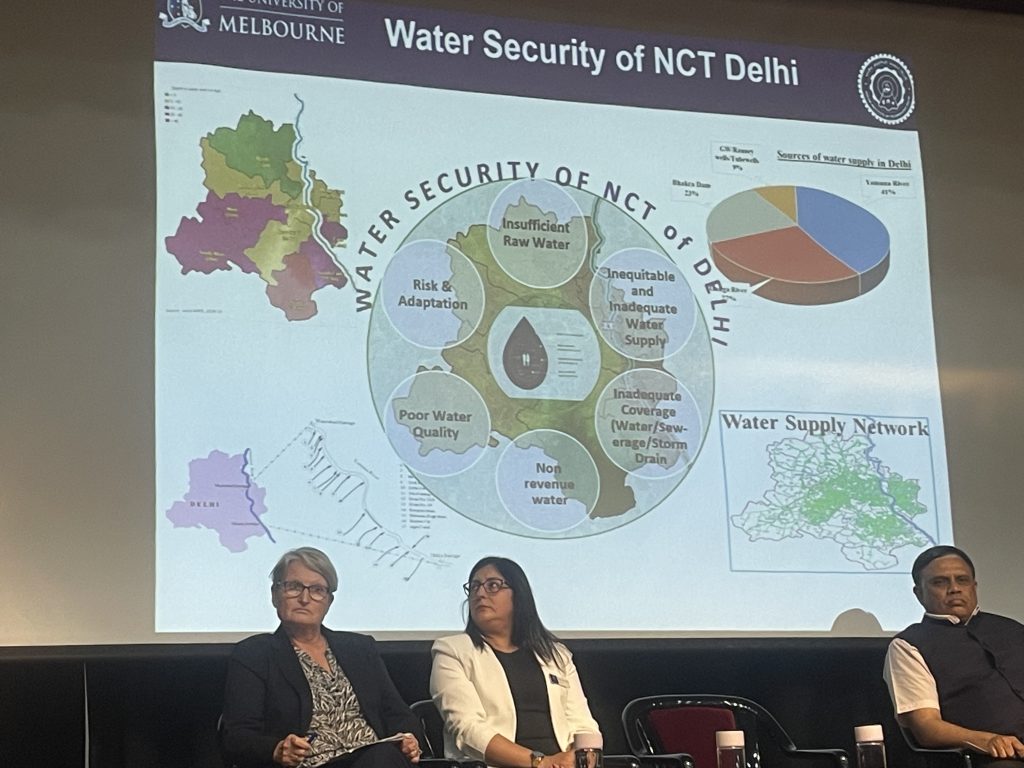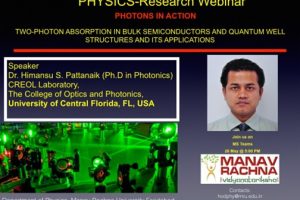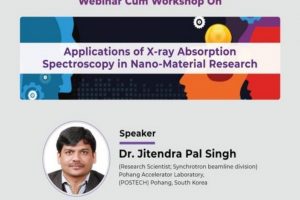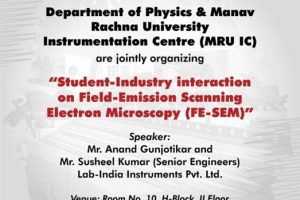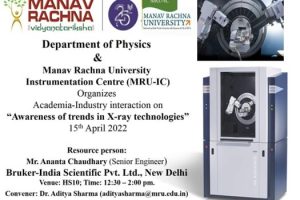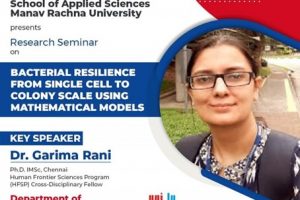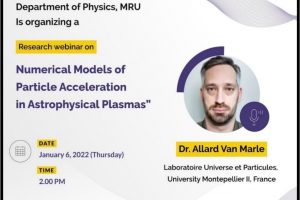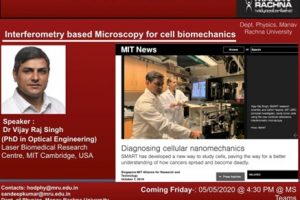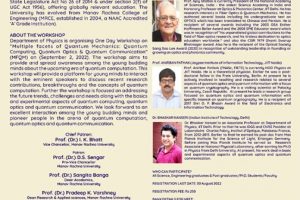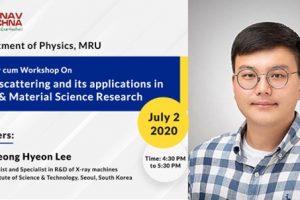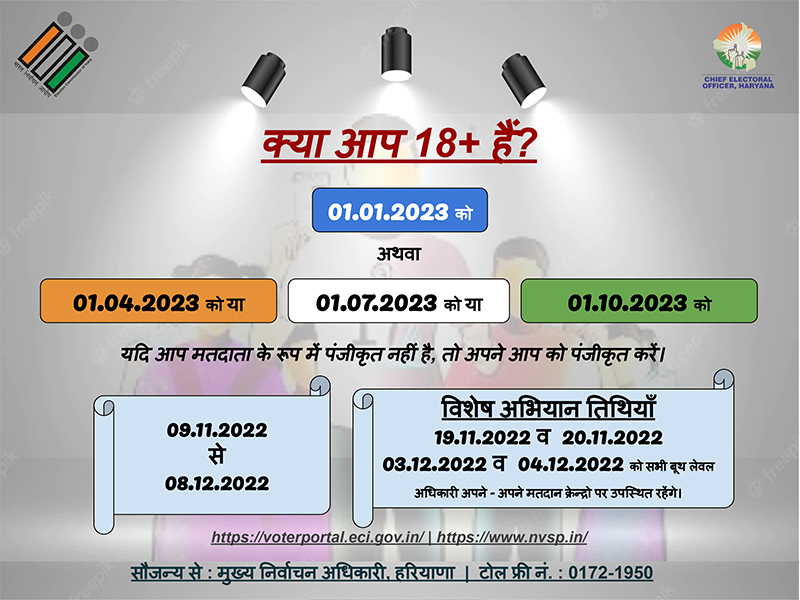Department of Sciences
The Department of Sciences at MRU comprises three programs: Physics, Chemistry, and Mathematics. It is committed to excellence in education and research. The department has a strong core curriculum complemented by a basket of electives. It strives to create and sustain an environment for learning, inquiry, and the generation of new ideas to aid the education of future engineers and science graduates.
The department of Sciences takes pride in its decorated faculty members, who are not only groomed in premier institutes of the country but also are highly experienced, dedicated to their respective specialized thrust areas, actively engaged in quality research and continuous upgradation of their pedagogical skills and they firmly believe in establishing a democratic relationship with their students as well.
The pedagogical philosophy of the department is based on the ‘Learning by Practicing’ strategy. It facilitates the students to develop strong fundamentals of the subject(s) and the skills required for solving scientific, technical, analytical, and mathematical problems. The same is achieved through the well-defined teaching and learning process that includes problem-solving sessions, and open discussions during tutorials, seminars, workshops, projects, etc. The department equips the students with the latest techniques for solving problems manually as well as with the help of software. The knowledge gained through laboratory work forms a major component while preparing future professionals. The curriculum emphasizes the development of scientific temperament, critical thinking, data acquisition, and evaluation skills along with effective communication and a collaborative approach to problem-solving.
A centralized University Instrumentation Centre (UIC) is also established at the MRU campus, which houses advanced instrumentation facilities to cater to the needs of the Sciences and Engineering departments. At present, the center offers facilities like UV-visible absorption spectroscopy, Fourier transforms infrared spectroscopy, gas chromatography-mass spectroscopy (GC-MS), RF and DC magnetron sputtering unit, a solar simulator with Keithley electrometer, high-temperature muffle furnace (1400 ºC), spin coater, pelletizer, and nanoparticle synthesis facility. The Department of Sciences has active international research collaboration with scientists/faculties at international facilities at POSTECH & PAL, Pohang, UNIST, Ulsan, Korea, KIST Seoul, Korea, GIST, Gwangju, Korea, North West University, South Africa and KIS Sweden. In addition, we have national collaborators at IUAC, NPL, and IIT, New Delhi. We organize International conferences to give them a flavor of organizing and hosting a professional event. Department has numerous connections with academicians from national and international platforms, Industry professionals, and scientists from government organizations. The department also hosts cultural events for the holistic development of students, organizes fun and or educational trips for students, visits to villages as a CSR initiative, sports competitions, etc.
As part of enhancing the student-teacher relationship, different faculties of the Department engage in providing mentorship to the students in terms of curriculum assistance, ethical values, and career counseling. Placement assistance is further provided to students through two dedicated cells of the University, namely the Career Development Center (CDC) and Corporate Resource Centre (CRC). The students are placed in companies of national and international repute like Agilent Technologies with the highest package of 8.65 LPA.
Knowledge Partners
- Korea Institute of Science and Technology, Seoul, South Korea
- Pohang University of Science and Technology, Gyeongsang, South Korea
- Pohang Accelerator Laboratory, Gyeongsang, South Korea
- Ulsan National Institute of Science and Technology, Ulsan, South Korea
- Indian Institute of Technology, Delhi, India
- Malaviya National Institute of Technology, Jaipur, India
- National Institute of Technology, Rourkela, India
- National Institute of Technology, Hamirpur, India
- Indian Institute of Remote Sensing, Dehradun, India
- Inter University Accelerator Center, Delhi, India
- National Physical Laboratory, Delhi, India
- University of Delhi, Delhi, India
- National Council for Cement and Building Materials (NCCBM), Faridabad, India
- Reinste Nano Ventures Pvt. Ltd., Noida, India
- The University of Winnipeg, Canada
- Zakir Husain Delhi College, DU
- RGCB Bio-Innovation Center, Kerala
- The University of Melbourne, Australia
- Yamagata University, JAPAN
- Royal Institute of Technology, Sweden
- Sandia National Laboratories, USA.

